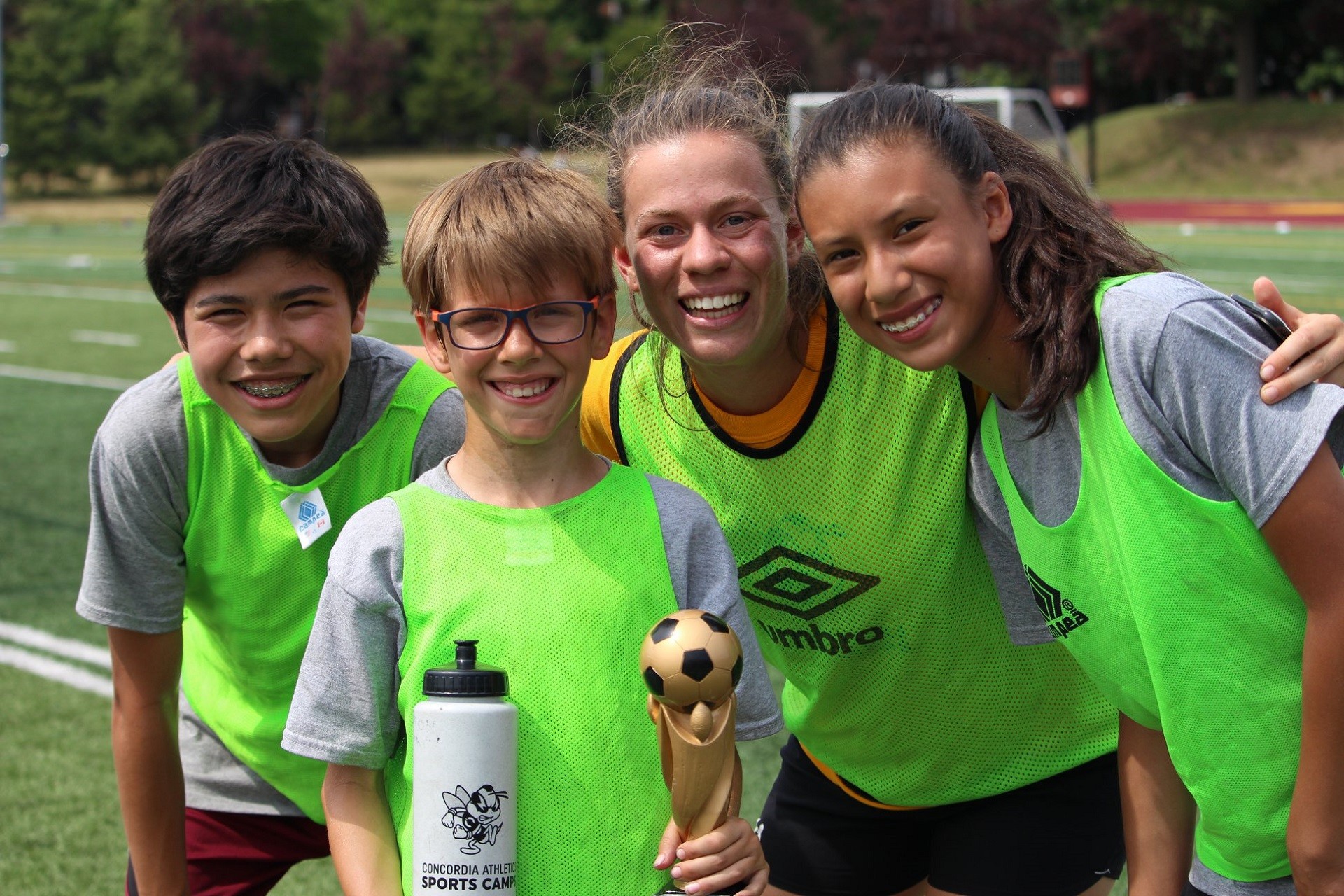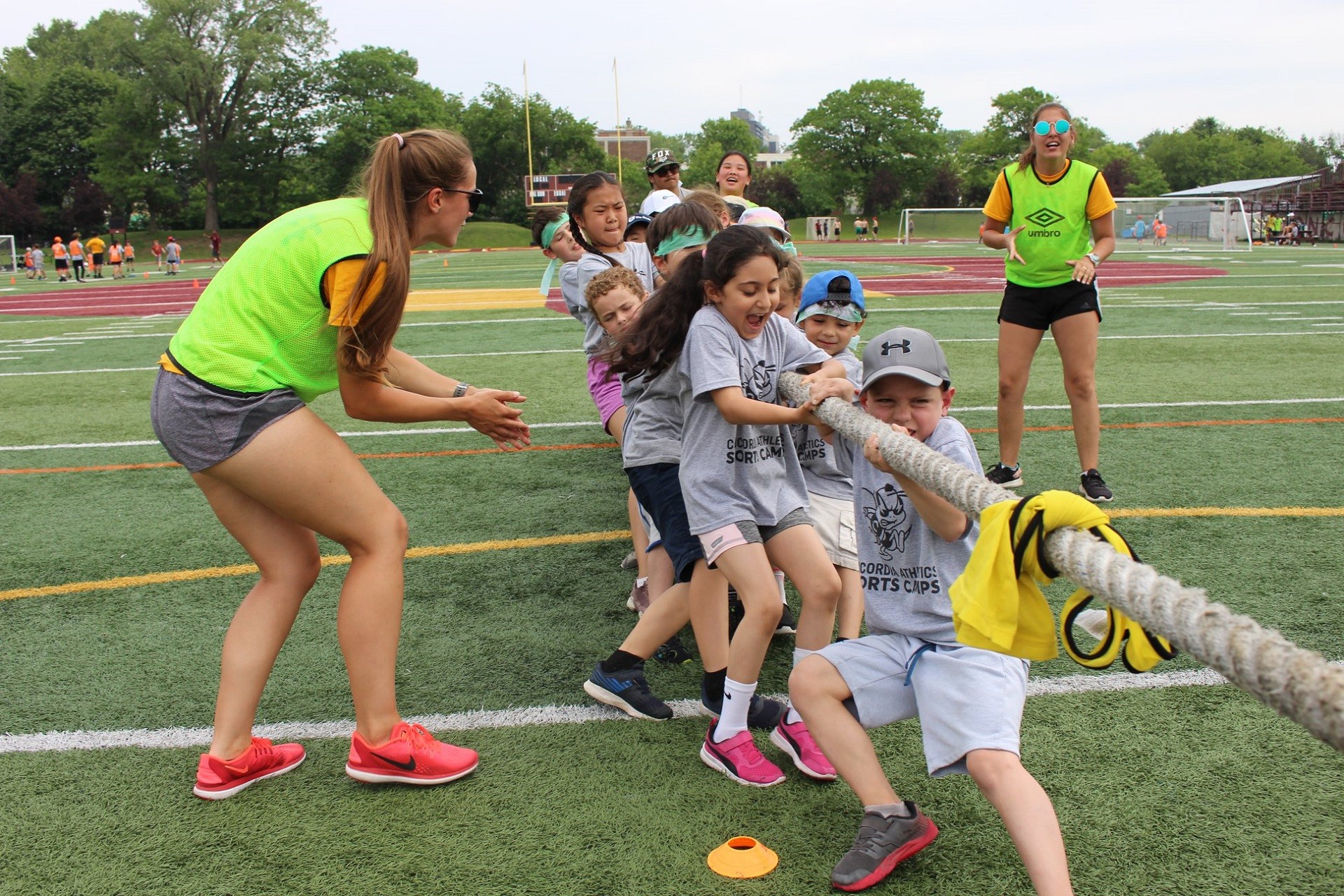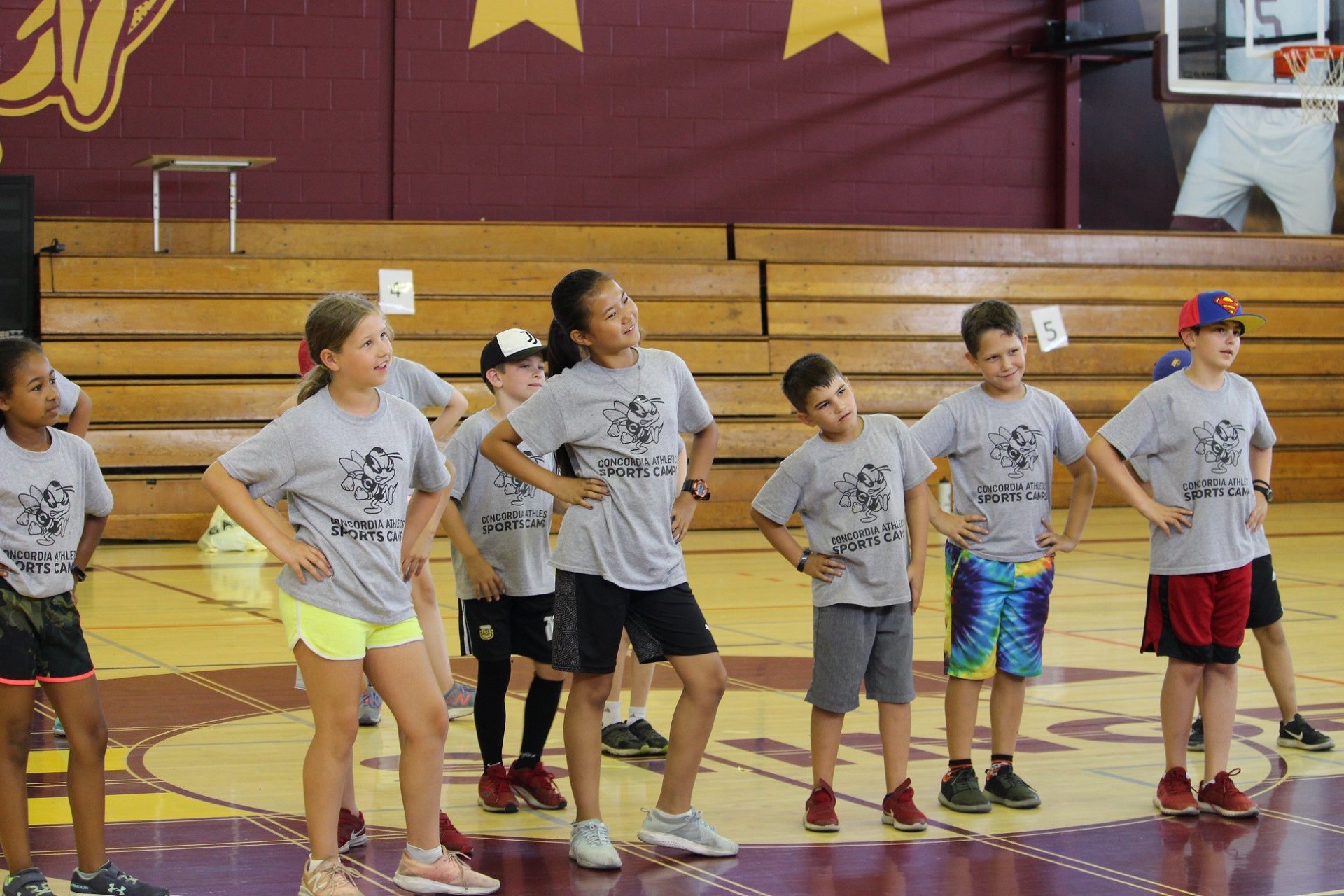Community Connections
"We're developing Leisure Education for youth."

Community Connections is a university-community collaboration aimed at developing leisure education within the Before and After School Enriched daycare program (BASE) of the English Montreal School Board (EMSB). For the past two years the Department of Applied Human Sciences (AHSC) in collaboration with the Department of Recreation and Athletics (R&A) at Concordia University has worked with the BASE program to provide children with a unique leisure learning experience. AHSC students can register for Leisure Education (AHSC 350), a 13-week experiential learning course where students get to design and develop activities and lessons for children between 5-10 years old.
Shawn Wilkinson is an assistant professor in AHSC and directly involved in the Community Connections initiative. "Our students get to implement their lesson plans and receive real time feedback about their pedagogical, facilitation, and communication skills. They can also receive additional instruction from teaching assistants who review their lesson plans and give detailed feedback about lesson construction and implementation. This approach also helps senior level teaching assistants to learn more about observation, teaching, and providing constructive feedback."
 Students facilitating a tug-of-war activity for children.
Students facilitating a tug-of-war activity for children.
For the first eight weeks of each semester the class is divided into a lecture and lab format. The lectures focus on leisure education models and the labs are dedicated to the design and development of leisure education lessons. Students are divided into 4 teaching teams of 8-10 students and each team is responsible for developing two different 1-hour leisure education lessons. The overarching goal of each lesson is to be inclusive, educational, and physically active.
Sessions include meditation, cooperative game play, artistic expression and problem solving. AHSC students break down each activity into individual tasks and work with children to develop the skills required for successful learning. "In a capture the flag game, the children work as a team cooperatively, they also work on developing physical skills, communication skills, and decision making skills. At the end of each lesson, the students will debrief with the children to discuss what skills the children worked on, how developing those skills can help them engage in leisure, and where in the community we can practice developing those skills," Wilkinson says.
 Children conducting an experiment as part of an AHSC student-led leisure activity.
Children conducting an experiment as part of an AHSC student-led leisure activity.
Adjusting to COVID-19 safety precautions
COVID-19 has become a unique opportunity for AHSC students to develop a series of leisure education modules centered around socially distant play. These modules will be created with an emphasis on activities that require minimal equipment, respect social distance measures, and maintain designated classroom bubbles. Krzysztof Kmiecik, the summer camp coordinator and Wilkinson, the course professor are working with BASE administration to develop a series of ongoing training sessions to help afterschool technicians successfully implement the activities.
"These training sessions ensure that children are able to participate in a variety of safe leisure education activities even if our students are prevented from entering the school. The goal is to expand the initiative and work closely with BASE to develop a COVID-safe afterschool leisure learning experience. We believe that teaching leisure education in afterschool programs has become even more important during these turbulent times. If schools and businesses are to remain open, children are going to need enjoyable and educational programming. We look forward to working with BASE to enhance the afterschool experience of all children while maintaining a safe and secure environment for everyone involved," Wilkinson says.
Get in touch with Shawn Wilkinson, Assistant Professor in AHSC and Krzysztof Kmiecik, Community Coordinator in Recreation/Athletics to learn more.
